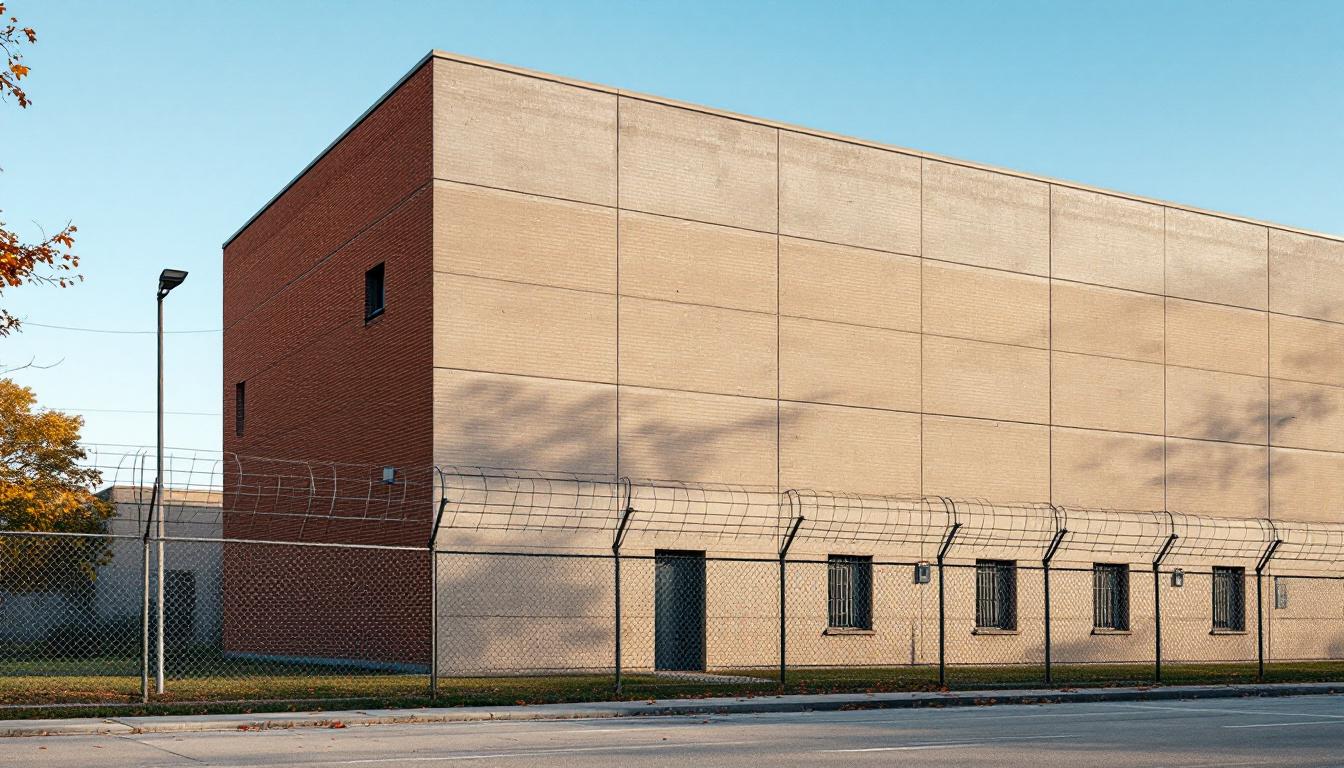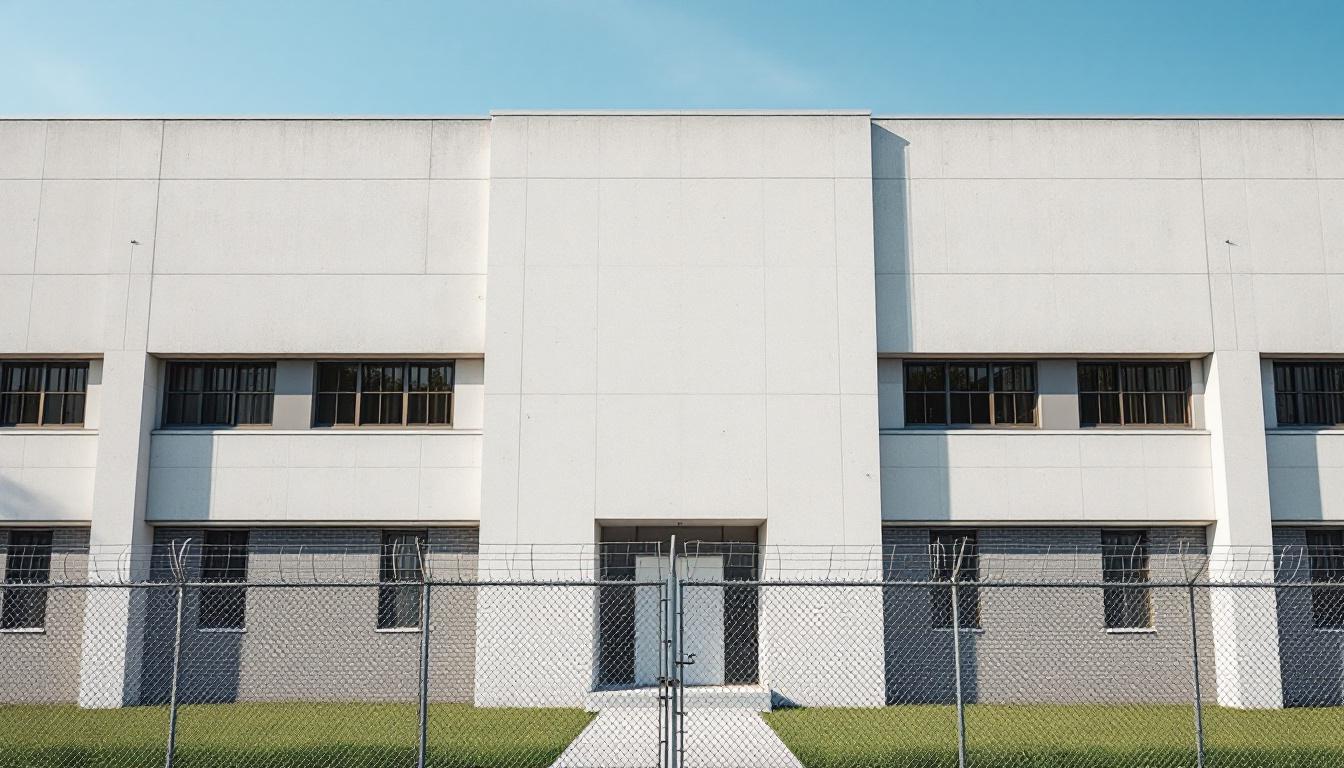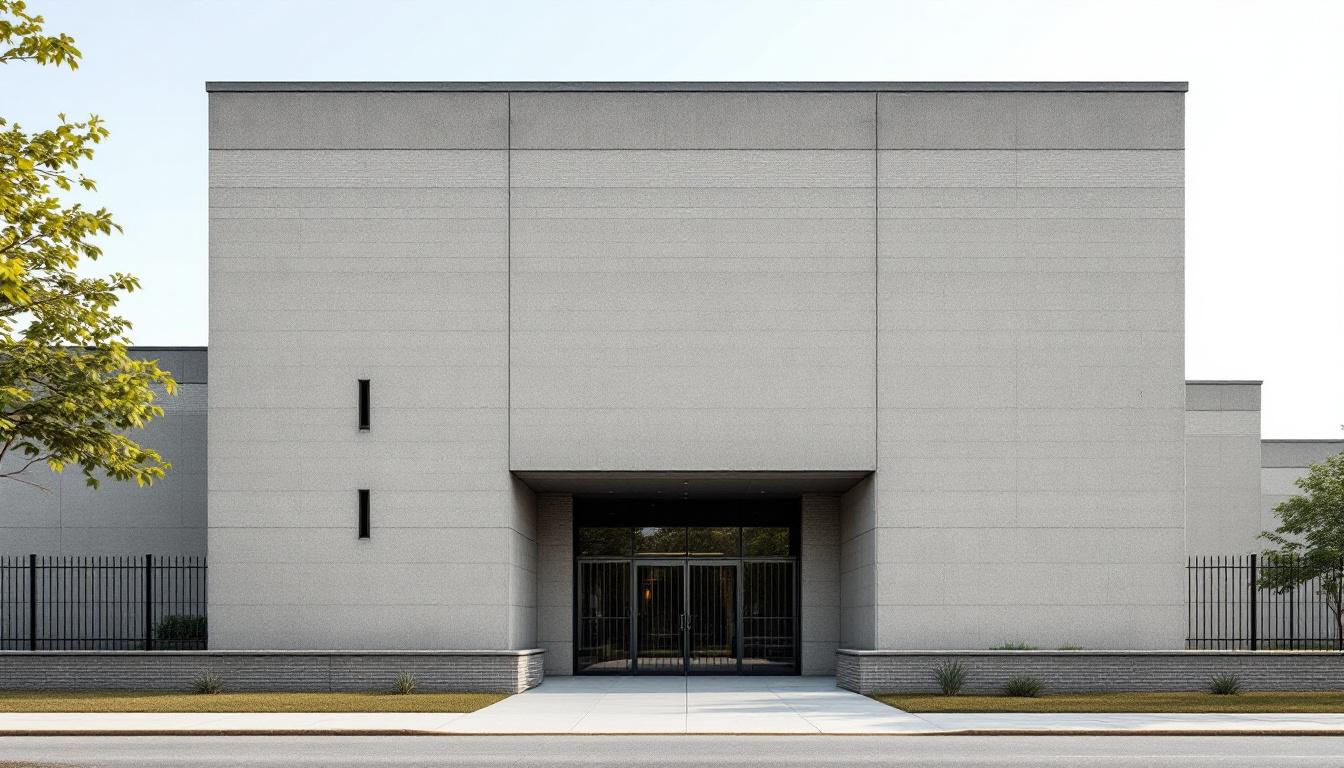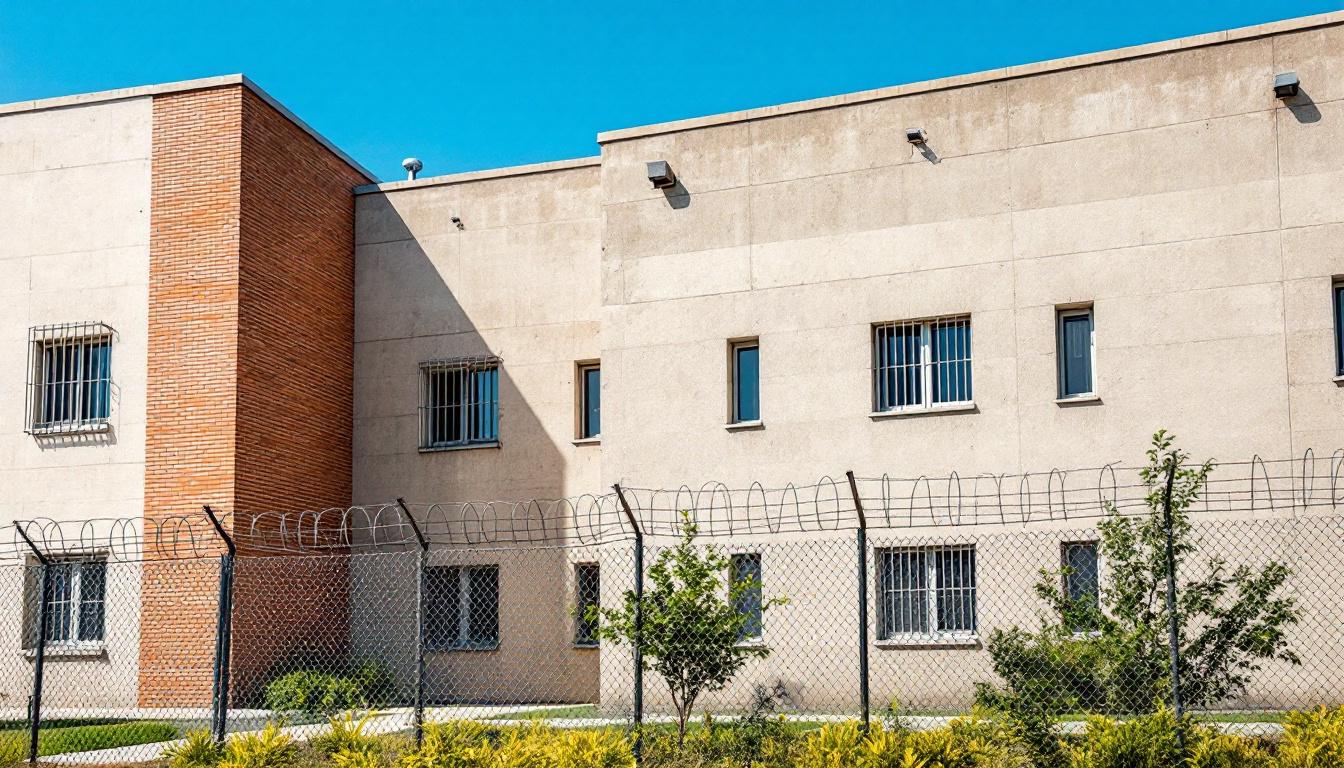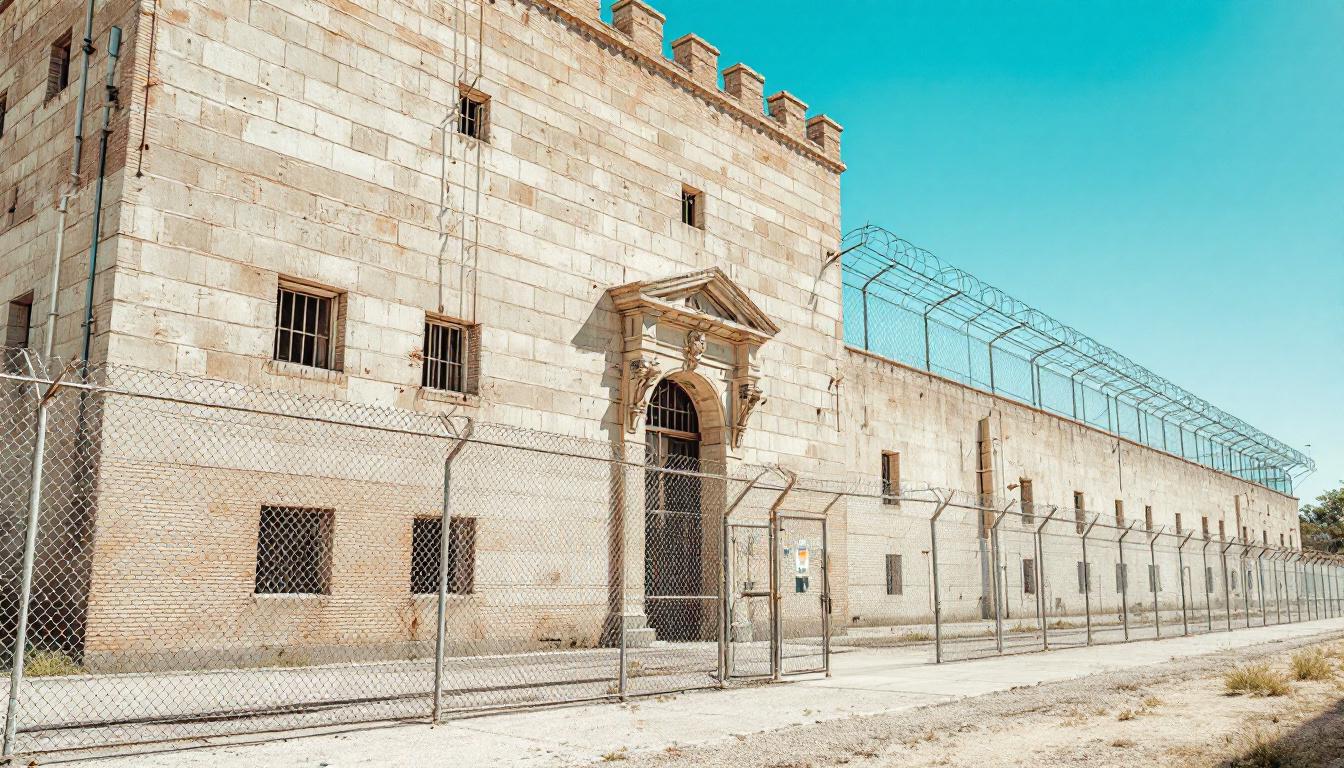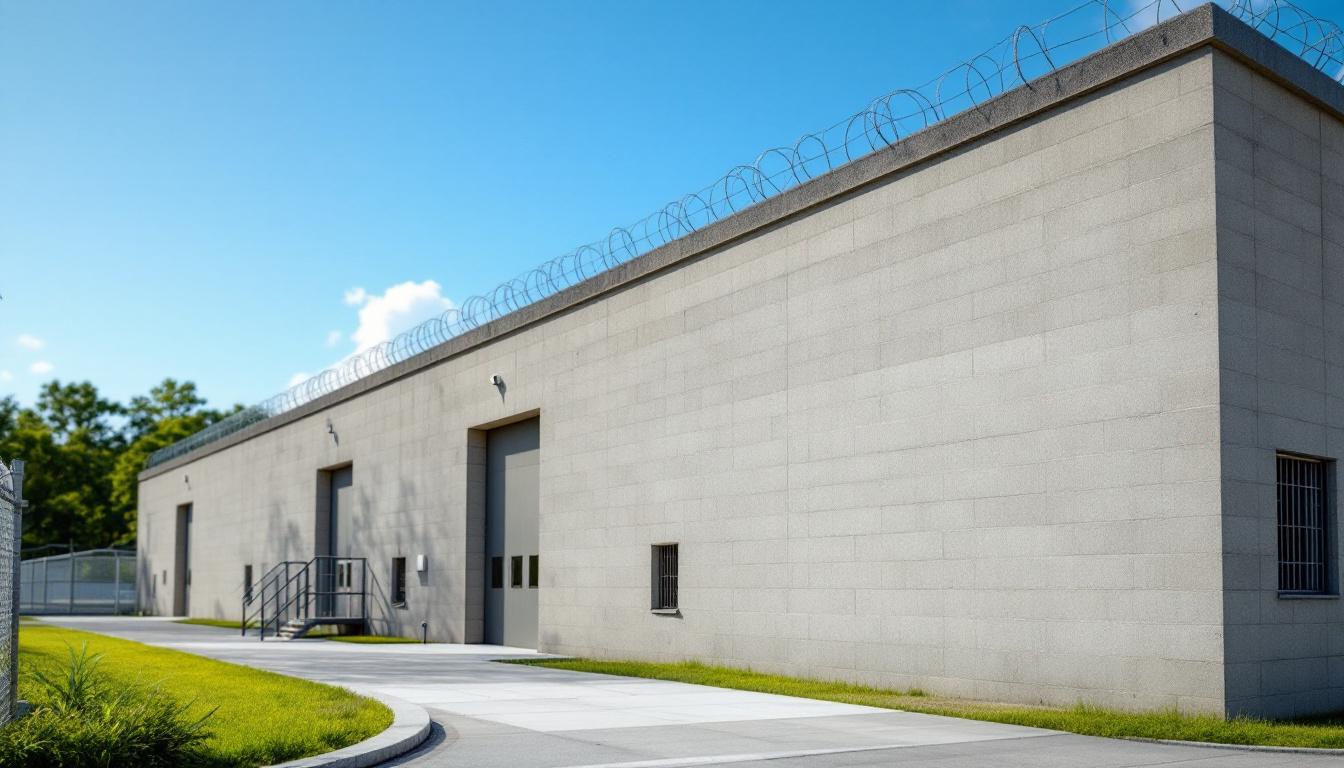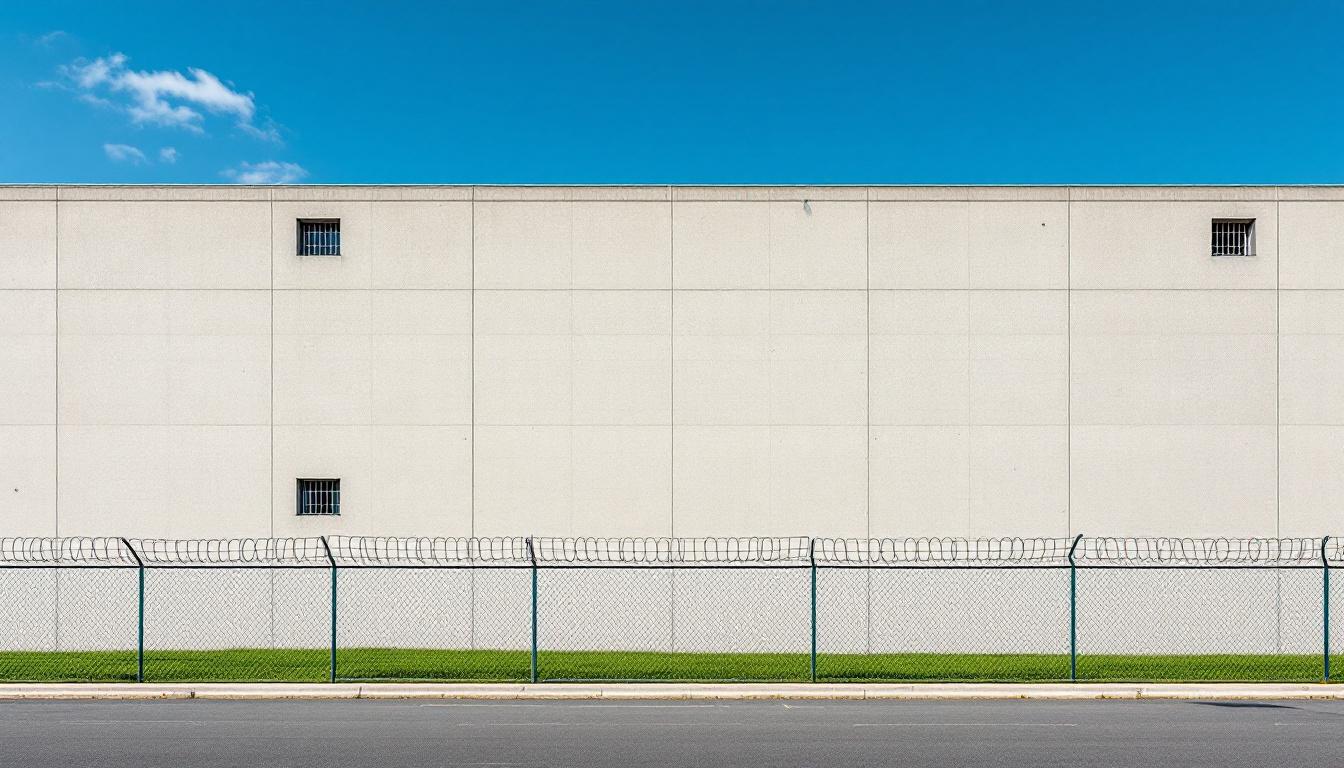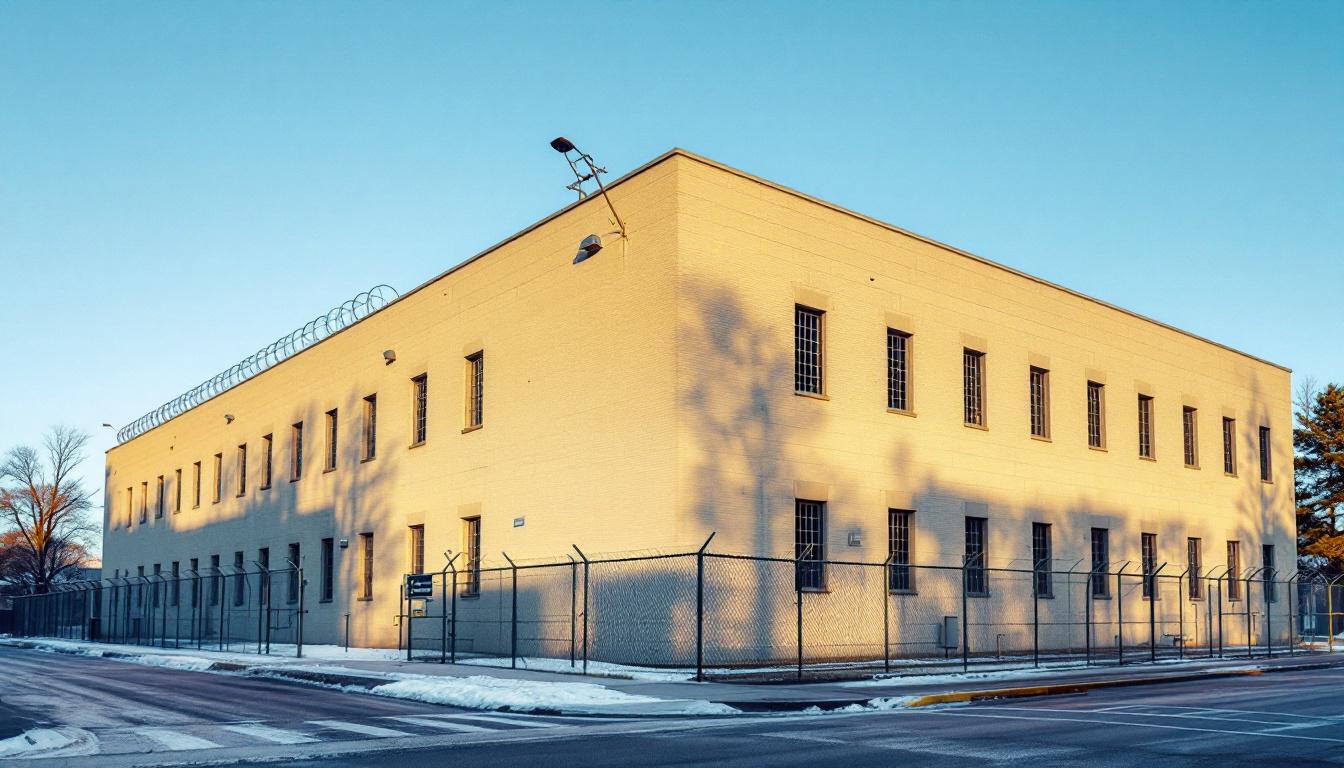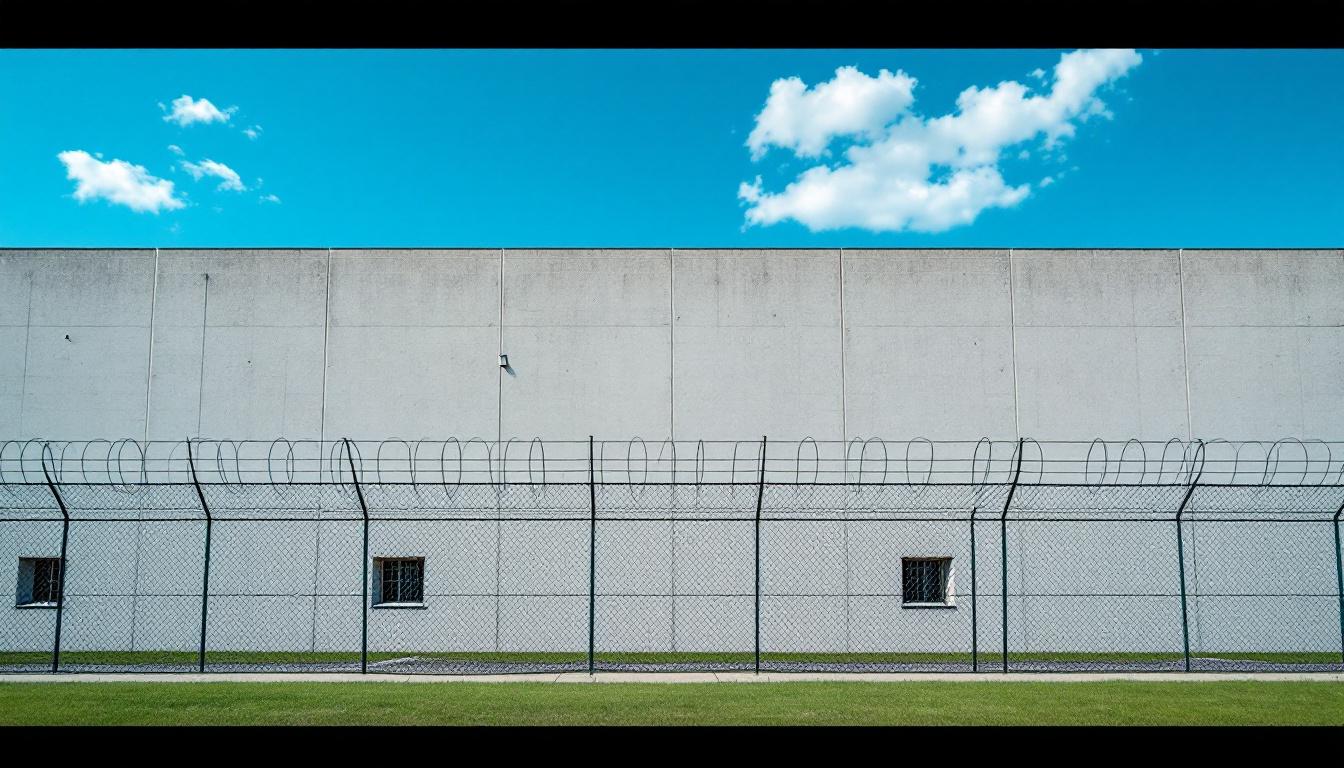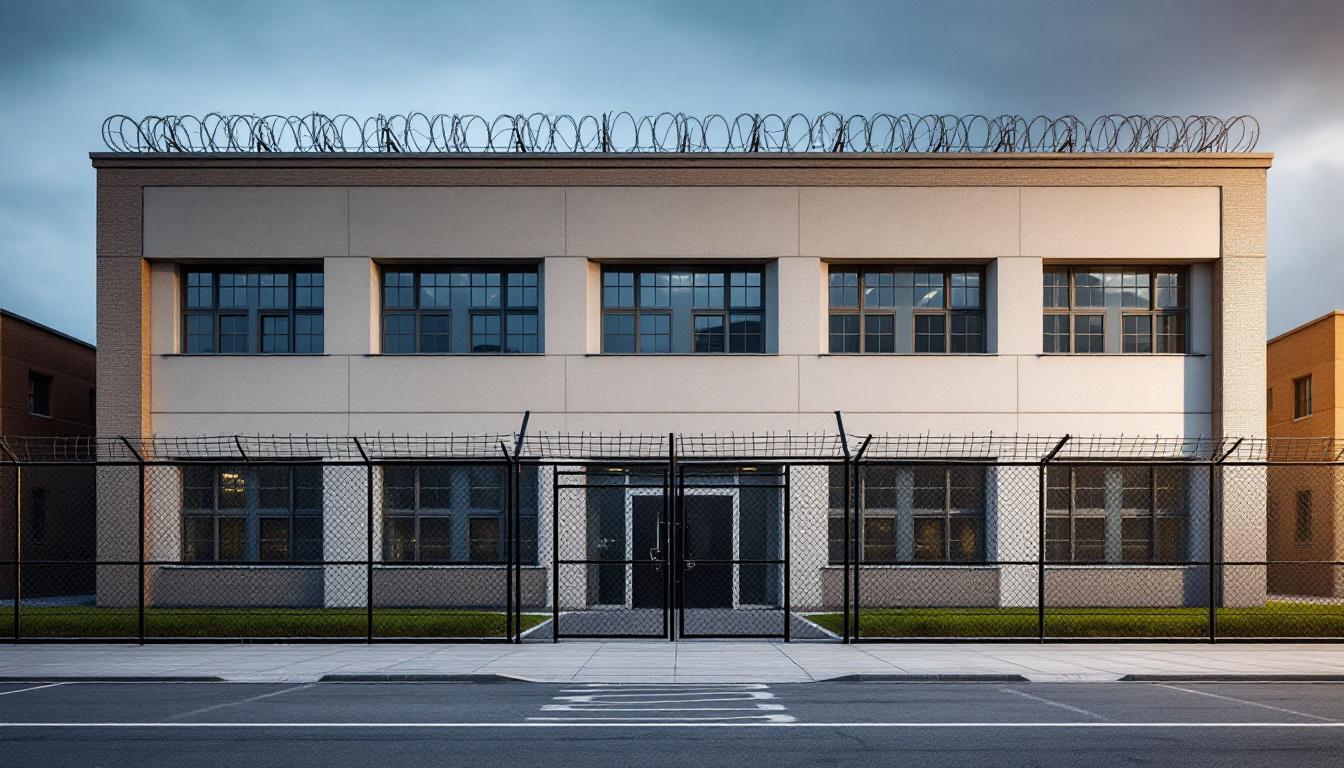
Quick Navigation
How to contact an inmate at Roswell Correctional Center
This comprehensive guide will walk you through how to connect with an inmate at Roswell Correctional Center. Follow the steps below to find an inmate and send letters and photos:
- Search for the inmate using our search tool below
- Create your account or log in to Penmate
- Write your message (up to 6,000 characters)
- Send instantly - inmates receive printed copies daily
Find an Inmate
Search for an inmate to start communicating today
Tip: You can search by first name, last name, or inmate ID number
To contact a person at Roswell Correctional Center start by searching for the person on the official facility website. Perform a search by following these steps:
- Step 1: Enter their first name and last name into the search form and click "Search"
- Step 2: Locate their inmate record
- Step 3: Write down their Inmate ID and any housing information provided
Important! Be sure to enter the person's full name. Nicknames should not be used.
How to Send Messages to Inmates

You can use your phone or computer to send emails, letters, and photos to an inmate. Messages are sent electronically to inmate tablets or kiosks at the facility. If you would like to send a message, start by searching for an inmate at Roswell Correctional Center.
Sending Photos and Postcards

A great way to send love and support to a loved one at Roswell Correctional Center is to send photos and postcards. It only takes a few minutes to send photos from your phone and it makes a huge difference. You can also mail postcards with words of support and inspiration, or design your own postcard for special moments like birthdays and holidays.
Important! Be sure not to send any explicit photos or they may not be approved by the facility. You can also use a photo printing app like Penmate to make sure your photos are printed at the correct size (4x6 or 3x5) and are mailed according to the rules and regulations of Roswell Correctional Center.
Frequently asked questions about Roswell Correctional Center
-
How long does it take to deliver a message?
If you're sending an email message your letter is usually delivered within 24-48 hours. For messages sent via mail you should expect delivery within 3-7 days. All messages will need be approved by Roswell Correctional Center.
-
How much does it cost to send a message to Roswell Correctional Center?
You can send a message free using your phone or mail a message via USPS for the price of a $0.60 stamp and envelope. You can also purchase credits or e-stamps from services starting at $1.99.
-
What services can I use to contact an inmate at Roswell Correctional Center?
Penmate
You can use Penmate to send letters and photos to an inmate from your phone. It's an easy way to stay in touch during your loved one's incarceration. Use the inmate locator to find an inmate's location and contact information, then you can send messages within a few minutes.
Securus messaging
Securus may be another option for communicating with an inmate at Roswell Correctional Center. You can create a friends and family account and purchase credits to send messages. All messages will be reviewed and must be approved by the facility.
JPay
Some county jails and state prisons may support sending messages with JPay. You must register an account with the system, find your loved one, and purchase stamps to send messages. For some locations you can also attach photos.
Smart Jail Mail
You may also check if Smart Jail Mail is available at Roswell Correctional Center. Smart Jail Mail is operated by Smart Communications and has contracted with some state and county jails. After purchasing credits, your messages and photos are sent to the facility, printed out, and then handed out to your loved one.
-
What is the mailing address of Roswell Correctional Center?
Mailing address:
Roswell Correctional Center
578 W Chickasaw Rd
Hagerman, NM 88232
Phone: (575) 625-3100 -
What are the visiting hours at Roswell Correctional Center?
Visiting hours at Roswell Correctional Center vary by housing unit and security level. Generally, visits are scheduled on weekends and holidays, with some facilities offering weekday visits. Contact the facility directly at (575) 625-3100 or check their website for the current visiting schedule. Visits typically last 30-60 minutes and must be scheduled in advance.
-
What items are prohibited when sending mail to Roswell Correctional Center?
Prohibited items typically include: cash, personal checks, stamps, stickers, glitter, glue, tape, staples, paperclips, polaroid photos, musical or blank greeting cards, hardcover books, magazines with staples, and any items containing metal or electronics. Only send letters on plain white paper with blue or black ink. Photos must be printed on regular photo paper (no Polaroids). Always check with Roswell Correctional Center for their specific mail policies.
-
How do I send money to an inmate at Roswell Correctional Center?
You can send money to an inmate at Roswell Correctional Center through several methods: 1) Online using JPay, Access Corrections, or the facility's approved vendor, 2) Money orders mailed directly to the facility with the inmate's name and ID number, 3) Kiosks located in the facility lobby, or 4) Over the phone using a credit or debit card. Fees vary by method, typically ranging from $2.95 to $11.95 per transaction.
-
Can I schedule a video visit with an inmate at Roswell Correctional Center?
Many facilities now offer video visitation as an alternative to in-person visits. At Roswell Correctional Center, video visits may be available through services like Penmate, Securus Video Connect, GTL, or ICSolutions. Video visits typically cost $10-20 for 20-30 minutes and must be scheduled in advance. You'll need a computer or smartphone with a camera and reliable internet connection. Contact the facility for their specific video visitation policies and approved vendors.
-
What identification do I need to visit an inmate at Roswell Correctional Center?
All visitors must present valid government-issued photo identification such as a driver's license, state ID, passport, or military ID. Minors must be accompanied by a parent or legal guardian who can provide the minor's birth certificate. Some facilities require visitors to be on the inmate's approved visitation list, which may require a background check. Contact Roswell Correctional Center for specific ID requirements and visitor approval procedures.
-
How can I find out an inmate's release date?
To find an inmate's release date at Roswell Correctional Center, you can: 1) Use the online inmate search tool if available, 2) Call the facility's records department, 3) Contact the inmate's case manager or counselor, or 4) Have the inmate provide this information during a call or visit. For privacy reasons, some facilities only release this information to immediate family members.
Facility Overview
Contact Information
Roswell Correctional Center578 W Chickasaw Rd
Hagerman, NM 88232
Phone: (575) 625-3100
Official Website

About Roswell Correctional Center
Correctional facilities serve as essential components within New Mexico’s justice system, providing secure environments where individuals work toward rehabilitation and eventual community reintegration. Located in Tampa, this mountain region community benefits from the presence of Roswell Correctional Center, NM, which typically operates as a state-managed facility designed to house adult offenders while offering various programs aimed at reducing recidivism and supporting successful transitions back into society.
The facility’s positioning within Tampa’s mountainous landscape reflects New Mexico’s broader approach to correctional management, where institutions often partner with local community resources to enhance rehabilitation outcomes. As an NM correctional facility, Roswell Correctional Center generally provides the population services that may include educational opportunities, vocational training, and substance abuse counseling programs. These initiatives typically work in conjunction with community-based organizations and local service providers, creating pathways for inmates to develop skills and connections that support their reintegration efforts upon release.
Through its role in the state’s correctional network, the facility often emphasizes preparing individuals for successful community re-entry while maintaining public safety standards. Family members seeking information about loved ones housed at this correctional facility can generally expect access to visitation programs and communication services, though specific policies may vary. The mountain region setting of Tampa provides a comprehensive backdrop for rehabilitation efforts, where the facility may collaborate with regional employers and educational institutions to create meaningful opportunities for skill development and personal growth.
Programs & Services
Comprehensive support services form the foundation of rehabilitation efforts at Roswell Correctional Center, with programs designed to address the diverse needs of the population. The facility typically emphasizes a holistic approach that combines skill development with personal growth opportunities. These services often focus on preparing individuals for successful community reintegration while addressing underlying factors that may have contributed to their incarceration.
Educational and vocational programs provide essential pathways for skill development and career preparation. The population may access basic education services, including literacy programs and opportunities to complete high school equivalency requirements. Vocational training opportunities often include construction trades and HVAC certification programs, which can supply valuable technical skills for employment after release. These programs typically emphasize hands-on learning experiences that prepare participants for in-demand careers in their communities.
In addition to these educational offerings, therapeutic communities and specialized support services address personal development needs. Life coaching programs may help individuals develop goal-setting skills and strategies for maintaining positive lifestyle changes. The facility often includes practical services such as laundry operations, which can provide work experience while maintaining facility operations. These therapeutic and support programs typically focus on building the interpersonal skills and coping strategies necessary for successful family reunification and community reintegration.
Daily Life & Visitation

Structured schedules and clear routines now define every aspect of life for the population at Roswell Correctional Center. The facility operates on a regimented timeline where residents regularly move between housing units, dining areas, work assignments, and programming spaces according to established protocols. Count times occur throughout the day to maintain accountability, while meal service typically follows set intervals that accommodate the facility’s operational needs. Work assignments supply essential structure, with residents generally participating in maintenance, food service, laundry operations, or other facility support roles that keep daily operations running smoothly.
Housing arrangements typically place residents in dormitory-style units or individual cells, depending on classification levels and available space. Living areas generally include basic furnishings and storage for approved personal property, while commissary access allows the population to purchase additional items within established guidelines. In addition to this basic accommodation structure, the facility usually maintains common areas where residents may gather during designated recreation periods, though movement between areas remains controlled and supervised.
Programming schedules supply educational opportunities, vocational training, and recreational activities that help structure free time throughout the week. Physical exercise typically occurs in designated areas during scheduled periods, while library access and other activities may be available based on facility resources. Despite this structured environment, communication with family members usually remains possible through regulated phone calls, correspondence, and visitation programs that operate according to established policies. These connections often provide important support systems that help residents maintain relationships while serving their time.
Ready to Connect?
Start communicating with your loved one today
Search for an Inmate
